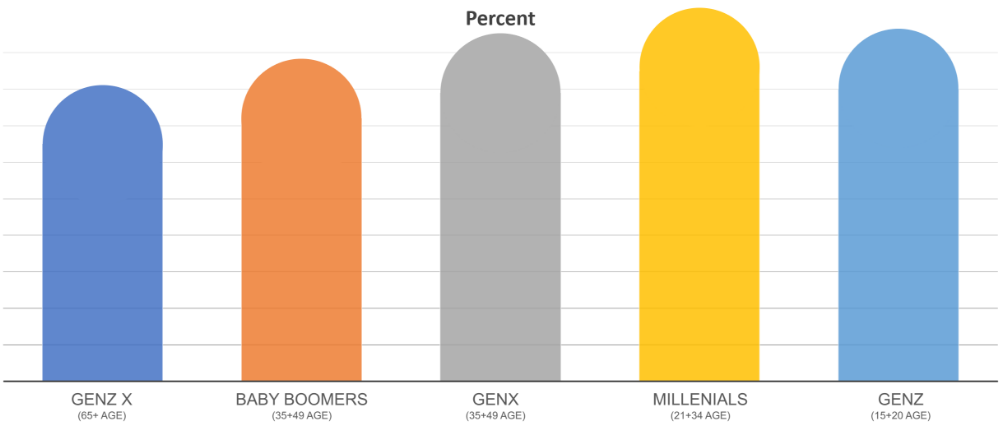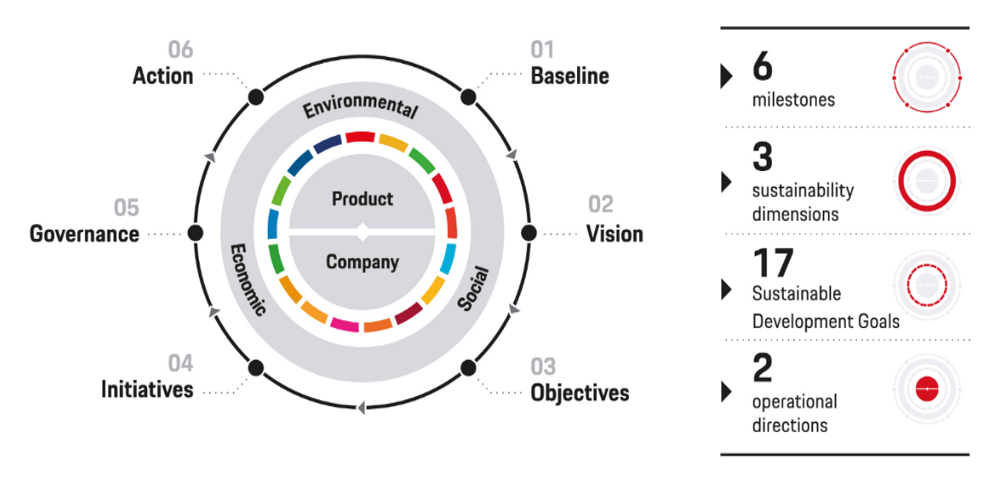Sustainability at the core: Need of the hour for global organizations
Sustainability development is the concept of people meeting their everyday needs without compromising the ability of future generations to meet their own needs. As a global society, we must internalize the learnings of the traumatic two years of the pandemic, to gain a position of strength and capability in case the world encounters another such crisis in the future.
The sustainability imperative
Sustainability is a revolution, but like most revolutions that paralyze business and people's lives, it, on the contrary, energizes organizations to pay back to the world. Sustainability is related to emissions, natural resources, waste, and pollution, and organizations need to undergo radical changes and embrace transparency to become truly sustainable business entities. We must proactively develop progressive steps while setting aggressive but attainable visions for our future related to the economic, social, and environmental impact.
Governments and enterprises are increasingly committing to climate action. Rapidly growing number of national governments, local government, and business leaders are making commitments to reach net-zero emissions within their jurisdictions or businesses. Net-zero transition calls for an economic transformation at a scale that can become unwieldy. Further, there are challenges in balancing the substantial short-term risks of unpreparedness and siloed actions with the longer-term risks of insufficient or delayed action. We will feel the economic effects of this transition on demand, capital allocation, costs, and jobs until 2050 across sectors that produce about 85% of overall emissions with assessed economic shifts for 69 countries.
For Wipro, sustainability services are an integral part of the organization's DNA. Not long ago, sustainability was a differentiator, a competitive advantage. Today it is a core objective of any business, desired by shareholders, demanded by customers, and determined by governments.
Our approach to clients and workplace sustainability: Our talented employees who design, develop, and implement integrated solutions create value for customers. We have a global and diverse workforce of over 180,000 employees spread across 55 countries. We emphasize respecting dignity and diversity and being sensitive to human rights, expectations, and needs. Our approach towards people development includes instilling a strong sense of citizenship and social responsibility in our employees. We have over 14,000 employees from nearly 40 chapters in India, collectively spending around 44,000 hours in voluntary engagement on a wide range of community and environmental initiatives.

Figure 1: Percentage of respondents who said that it is “Extremely” and “Very Important” that companies implement programs to improve the environment.
Since Wipro’s founding in 1945, the belief that drove us is that purpose fuels business and business fuels purpose. They harmonize to fuel each other in a way where we
A future that works for everyone
Wipro is passionate about the triple bottom line — aligning our business mandate with ethical responsibility, permeating social good in our businesses and workplace, and believing in a holistic approach covering the following broad areas:
Sustainability: Wipro is a founding member of Transform to Net Zero and commits to contributing to the goal of planetary zero-carbon emissions. We have significantly reduced the ecological footprint of our operations in energy & carbon, water, waste, and pollution management. We endeavor to preserve the biodiversity in our campuses and local communities, and we are helping our clients re-visit their businesses to be more sustainable.

Figure 2- Cycle of Sustainability Initiatives
Partnering with our supply chain: We consider our suppliers vital to our business continuity and optimal performance.
How we manage our environmental externalities: Our ecological sustainability programs feature multiple themes identified through a rigorous assessment of environmental impacts arising out of our business and supply chain operations. The key themes of our ecological sustainability programs are energy, water, and waste management.
Biodiversity and urban resilience: We have well-defined science-based targets (SBTs) for reductions in carbon intensity and absolute emissions until 2050, starting from 2017, our baseline year. These initiatives have resulted in energy savings of $206.7M over the last decade.
Governance and management: Stakeholders (Employees) are encouraged to highlight and report any non-adherence or violation of our values and ethics via the Ombud’s process without fear of reprisal. While we carry out our sustainability strategy and action across organizational levels, geographies, and functions. We have been active participants in several Environment, Social, and Governance (ESG) disclosure frameworks such as the Dow Jones Sustainability Index, the Carbon Disclosure Index, and Ethisphere’s World’s Most Ethical Company listing. Our disclosures aligned with GRI (Global Reporting Initiatives) and NVGs (National Voluntary Guidelines) are available in the public domain.
Partnership: Transform to Net Zero: We launched this cross-sector initiative in 2020 to accelerate the transition to a net-zero emissions global economy. Wipro is proud to be a founding member of this initiative along with marquee brands such as Microsoft, Starbucks, Mercedes, BSR, and Unilever.
We have also received several awards in this area:
Empowering a sustainable future
Wipro is committed to improving our planet’s future as a global business. We are passionate about devoting significant time and resources to developing lasting solutions.
Sustainability as a competitive differentiator: In addition to direct and indirect cost savings, ‘green’ is the most critical tool in cultivating current and future client relationships. Sustainability metrics have perhaps been the biggest change to client proposals that we have seen in recent years. As global enterprises embrace corporate social responsibility (CSR), vendors must also adapt and change their ways to align with customer values. The whole package has to be competitive, but having a strong strategy around sustainability can be enough to swing new business in our direction. Wipro believes that being sustainable gives us the best of both worlds; it makes great business sense and ensures we protect the earth for our children and future generations.
Divya Singh, Presales Consultant - Travel, Transportation, Logistics & Hospitality, Digital Operations & Platforms
Divya is a postgraduate in management and has 13 years of experience in HRO, BPO & healthcare pre-sales, crafting client-centric solutions that address the rapidly evolving business and technological landscape.